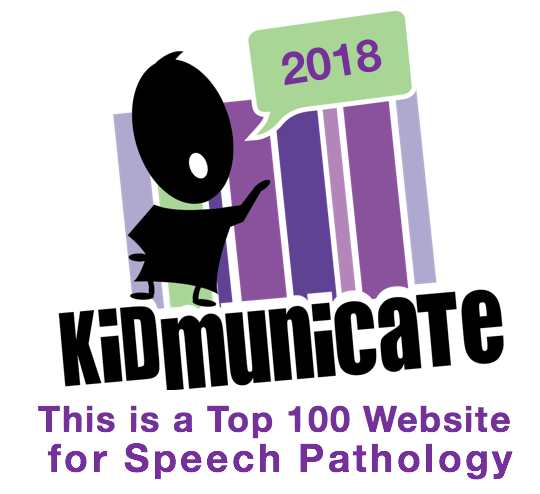At last weekend's ASHA Healthcare and Business Institute in Las Vegas, I presented a session entitled "Tech Up," detailing a variety of simple technologies that can be infused for productivity and engagement in the private practice setting (though the ideas, including this one involving Apple TV, are applicable to other settings). Apple TV is a small device that allows you to display content on a TV, and is especially helpful when you need to engage a group. Because this technology is pretty impossible to demonstrate in a conference setting (one never knows what the wifi situation will be), I made a short video at the Ely Center where I work and where we have been using Apple TVs in order to show this to the attendees- and you!
A couple of key points I want to reiterate in case you missed them in my babbling:
-The Apple TV is only $99 and can be attached via HDMI cable to any HDTV (now cheap- the one shown here cost about $400).
-It can then be used to "mirror" an iPad or iPhone so that anything viewable on the small screen will show up on the big screen- apps, videos, webpages.
-This is useful for "dedicated" speech-language apps (such as Tactus' Conversation TherAppy, shown here) as well as creative application of any apps that provide a visual context for speech, language, or social communication, as well as overall client education.
-The Apple TV and your device need to be on the same wifi network in order for the AirPlay button to show up in Control Center, as shown in the video but also here.
-My point about turning on the actual TV after mirroring is just one I have learned from experience, and usually just prevents distraction. However, once, after this poster popped up, I had to explain to a parent that her son had inquired what a "virgin" is (I pretended I didn't hear the question)- luckily, she was totally cool with it. You can also quickly dismiss the iTunes preview by tapping "down" on the remote.
Hopefully the video is helpful to you.
Thursday, April 17, 2014
Tuesday, April 15, 2014
ASHA Healthcare and Business Institute 2014
I had the great opportunity to present at and attend the ASHA Healthcare and Business Institute at Green Valley Ranch in Las Vegas this past weekend. It was a great learning experience, and as you know, Vegas is no fun at all.
I presented three sessions: Inside and Outside the Box Apps for Pediatrics/Adults (2 sessions) and Tech Up! (a sort of day-to-day incorporation of technology to increase productivity and engagement in private practice settings). All went well, and the audience was terrific!
On the first day, I attended several sessions before mine, and especially enjoyed Audrey Holland's presentation on new directions in aphasia therapy. She discussed the value of contextual, functional group therapy (including narrative, which I am all about) and applications of technology- here was my tweet from her session.
Oops, I said Skype twice. I guess I thought it was important.
Now, my background includes a clinical fellowship year working in adult neurogenic rehab, some work helping with the initial offerings of Boston University's Aphasia Resource Center (specifically, what was then known pre-iPad as the "Aphasia Computer Club), and development of presentations including apps for adults. I work extensively with adolescents in transition from high school and some adults with autism, but I am primarily working in pediatrics and with kid-related topics and interventions, so the "refresher" was certainly welcome.
I especially appreciated Dr. Holland's reference to a VERY recently published issue of Seminars in Speech and Language (February, 2014) dedicated to the use of mobile tech in aphasia treatment. As electronic access to journals is not so easy for those of us not-in-school, I immediately texted my graduate intern from BU and asked if she had time to download and send me the articles (she did- thanks, Lauren!). One in particular, delightfully co-written by Elizabeth Hoover, my graduate placement supervisor back in 1999, and classmate Anne Carney, ended up providing me with the following additional slide for my presentation:
I presented three sessions: Inside and Outside the Box Apps for Pediatrics/Adults (2 sessions) and Tech Up! (a sort of day-to-day incorporation of technology to increase productivity and engagement in private practice settings). All went well, and the audience was terrific!
On the first day, I attended several sessions before mine, and especially enjoyed Audrey Holland's presentation on new directions in aphasia therapy. She discussed the value of contextual, functional group therapy (including narrative, which I am all about) and applications of technology- here was my tweet from her session.
#hcbi14 A. Holland: mobile tech is most important development in aphasia tx in past 10 years: apps, Skype, youtube, Skype, games #slpeeps
— Sean Sweeney (@SpeechTechie) April 11, 2014
Oops, I said Skype twice. I guess I thought it was important.
Now, my background includes a clinical fellowship year working in adult neurogenic rehab, some work helping with the initial offerings of Boston University's Aphasia Resource Center (specifically, what was then known pre-iPad as the "Aphasia Computer Club), and development of presentations including apps for adults. I work extensively with adolescents in transition from high school and some adults with autism, but I am primarily working in pediatrics and with kid-related topics and interventions, so the "refresher" was certainly welcome.
I especially appreciated Dr. Holland's reference to a VERY recently published issue of Seminars in Speech and Language (February, 2014) dedicated to the use of mobile tech in aphasia treatment. As electronic access to journals is not so easy for those of us not-in-school, I immediately texted my graduate intern from BU and asked if she had time to download and send me the articles (she did- thanks, Lauren!). One in particular, delightfully co-written by Elizabeth Hoover, my graduate placement supervisor back in 1999, and classmate Anne Carney, ended up providing me with the following additional slide for my presentation:
What I loved about this new information was that it provided a powerful context to demonstrate some of these tools, particularly Keynote, Reader (which provides a clean, uncluttered view of many test-based webpages in Safari), and Speak Selection (which is one way to access text-to-speech) as tools for clients to access text.
On the matter of Keynote, it is really one of my go-to apps whenever I need a "blank slate" to work with when creating or displaying visuals, which is exactly how this article framed it. Keynote ($9.99, free on new iPads purchased after fall 2013) is in short Apple's version of PowerPoint, though in many ways I like it more. Look to Keynote as a way to create a slide or two to break down a concept, display pictures, or even create picture stories. How do you use Keynote? It's as simple as this image I created for a recent workshop:
So, the conference went well, and I hope this information is helpful for clinicians and educators working with clients of all ages and populations.
I may have a few more posts related to this trip, but for now, I will leave you with a #selfie of me waiting to see Olivia Newton-John! I did make it to the strip a couple times...
Labels:
adults,
iOS,
professional development,
research,
visual teaching
Wednesday, April 2, 2014
iPad Essentials: Window Shopping in the App Store
While recently conducting a few "iPad 101"-style workshops for educators and clinicians, including a webinar for ASHA available on-demand, I have been talking a lot about finding and getting ideas about helpful apps. I discussed this in a post a bit back mentioning resources including Smart Apps for Kids, Yapp Guru and Apps Gone Free, but it's also worth noting the "window shopping" one can do in the App Store app itself.
Although the information the App Store provides is far from comprehensive (I always recommend looking at app demos on YouTube before purchasing) and reviews can be quite skewed or unhelpful, it gives you a good visual "first pass" to new ideas. The App Store has also recently improved in its organization, which primarily is what we'll focus on in this post.
I use the term "window shopping" because the App Store is essentially a storefront from Apple and an avenue to display things that look attractive together-- collections! Upon opening the App Store, the Featured tab is an area that is a good idea to check out about once a week, primarily because Apple's "App of the Week" is always free. If Apple has singled an app out in this way out of the zillions available, you can be assured it is pretty neat-o, and many of the Apps of the Week are kid- or education-related.
Although the information the App Store provides is far from comprehensive (I always recommend looking at app demos on YouTube before purchasing) and reviews can be quite skewed or unhelpful, it gives you a good visual "first pass" to new ideas. The App Store has also recently improved in its organization, which primarily is what we'll focus on in this post.
I use the term "window shopping" because the App Store is essentially a storefront from Apple and an avenue to display things that look attractive together-- collections! Upon opening the App Store, the Featured tab is an area that is a good idea to check out about once a week, primarily because Apple's "App of the Week" is always free. If Apple has singled an app out in this way out of the zillions available, you can be assured it is pretty neat-o, and many of the Apps of the Week are kid- or education-related.
Note also that the menu at the top of the App Store leads you to some relevant areas for SLPs and language interventionists. Tap Kids (and then an age range) and this will bring you to educational, creative, or game-based apps that may be repurposed for therapy and learning activities.
Under the More tab, there are several areas to explore. The Education area has great curriculum-based apps that can be used to provide visual and interactive experiences with content...
...and includes terrific Collections, among them the Apps for Every Grade Collections- especially helpful for those who struggle to find relevant apps for Middle and High Schoolers.
The More tab in the top menu also brings you to the Medical category, which has many apps relevant to clinical work.
Exploring the App Store will lead you down new avenues and provide a great opportunity to hone your evaluation skills: which apps seem to be FIVES-Friendly: Fairly Priced, Interactive, Visual, Educationally Relevant, and "Speechie" or Specific to intervention objectives?
Happy window shopping!! Let us know if you find something good...
Labels:
apps,
evaluation,
FIVES,
ipad essentials
Subscribe to:
Posts (Atom)











